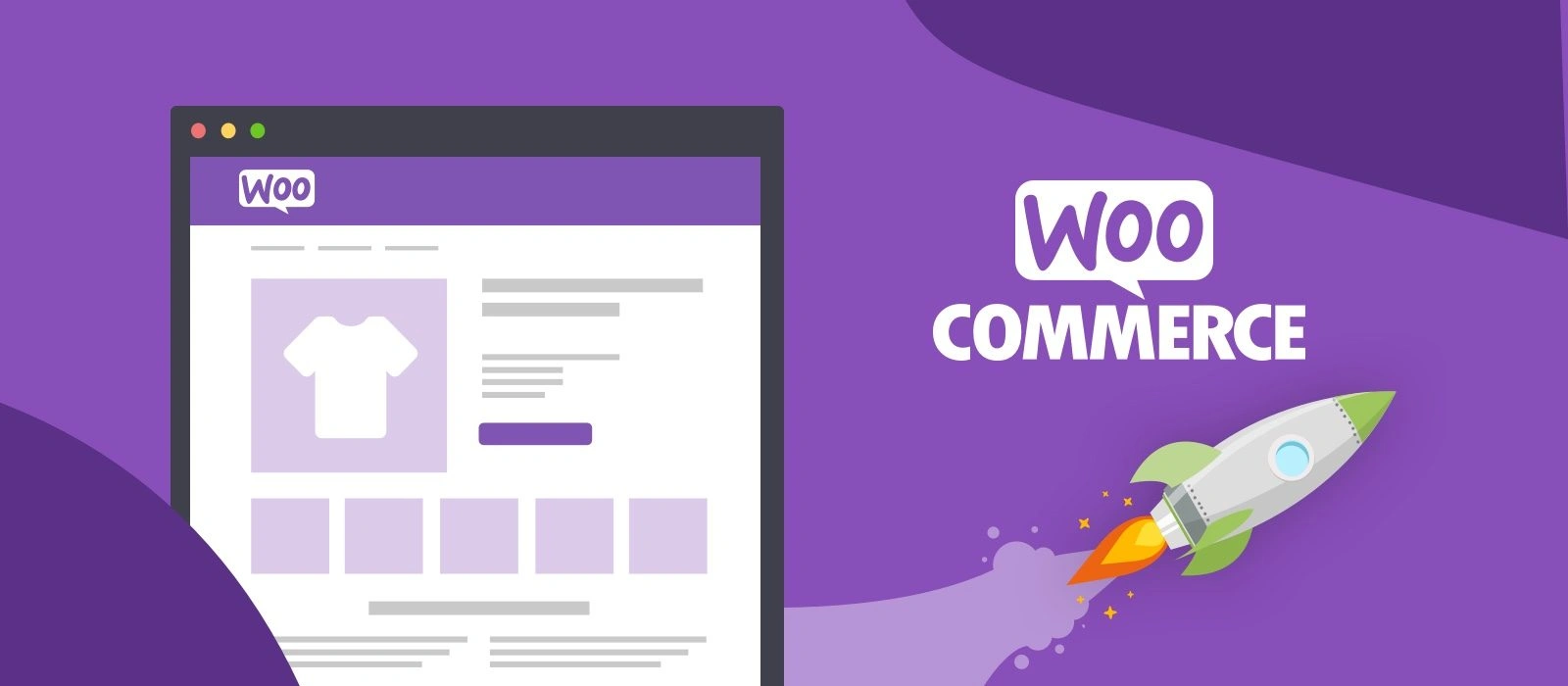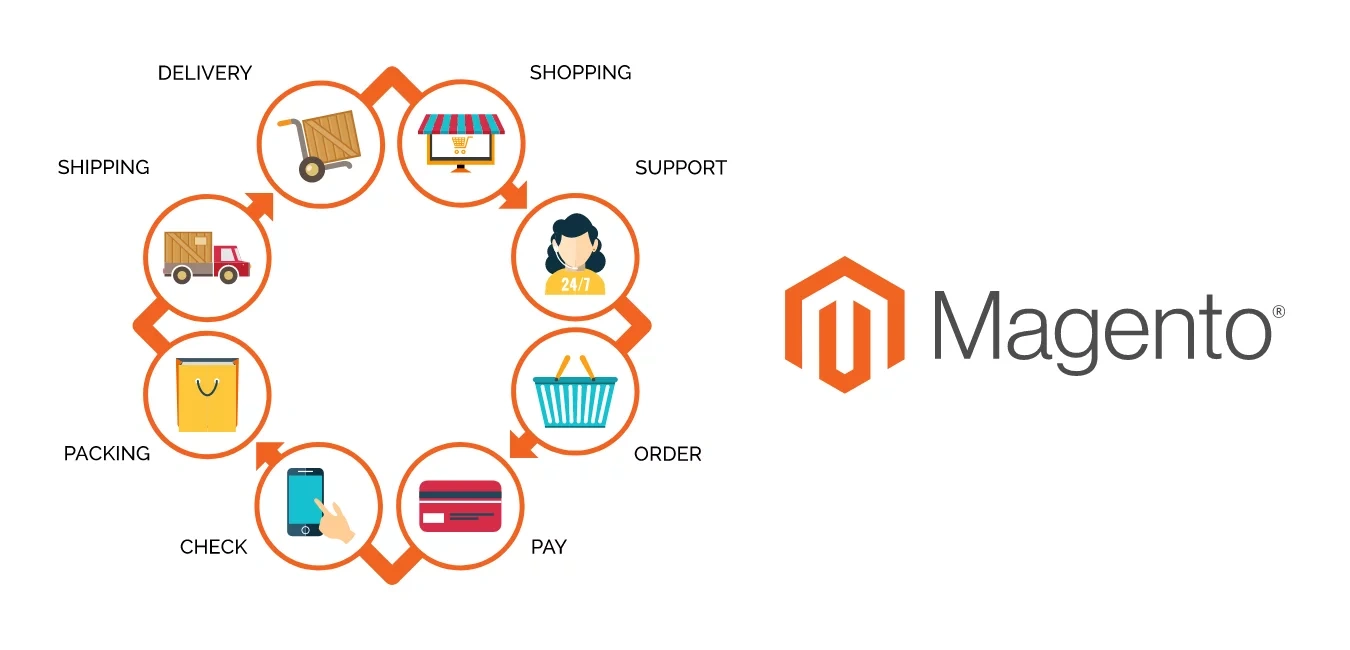
You have a great product, a clear vision, and the drive to take your business to the next level. What do you think is the only thing standing between you and e-commerce success? Choosing the right platform to sell your products online.
Sounds simple, right? Until you realize that there are dozens of platforms, each promising to be the “best.” Shopify, WooCommerce, Magento – and that’s just the beginning. But what if your business has unique needs that these out-of-the-box solutions can’t handle? That’s where customized e-commerce solutions come in.
So, how do you choose the right e-commerce platform in 2025? Let’s break it down.
Step 1: Understand Your Business Needs
Before you think about platforms, you must assess your business from the ground up. Your choice of an e-commerce platform will directly impact how smoothly your operations run, how easily you can scale, and how well you serve your customers. To start on the right foot, ask yourself these questions:
- What are you selling? Is it physical products, digital downloads, or a mix of both?
- What is your growth plan? Are you starting small or aiming to scale quickly?
- Do you need custom features? Will standard e-commerce platforms work, or do you need custom e-commerce development services?
Understanding your business needs is the foundation of choosing the right platform. For example, if you sell a simple product like t-shirts or handmade candles, a user-friendly platform like Shopify might be all you need. It’s easy to set up, offers pre-designed themes, and handles payments seamlessly. However, if you run a more complex business, like a manufacturer offering custom-configured products or a B2B operation with tiered pricing, you might quickly hit the limits of traditional platforms. 
Managing intricate workflows, advanced shipping options, or personalized product catalogs on a one-size-fits-all solution can quickly become frustrating and inefficient. This is where customizable enterprise e-commerce platforms shine. Custom solutions allow you to build workflows tailored to your processes, offering flexibility that grows with your business. For example, companies with complex inventory management or personalized product offerings can benefit from a platform that adapts to their unique requirements. Whether you need to implement specialized pricing structures, integrate with legacy systems, or provide dynamic product customization, a custom solution can deliver where standard platforms fall short. The key is aligning your platform choice with your operational complexity and future growth ambitions, ensuring your e-commerce system evolves with your business needs.
Step 2: Evaluate Popular E-commerce Platforms
Choosing the right e-commerce platform involves understanding how different solutions align with your business goals. Here’s a breakdown of the major players and why they stand out in a competitive market:
1. Shopify: The Fast-Track to Selling
When evaluating an e-commerce platform, it’s essential to understand the key features and how they align with your business’s current needs and long-term growth. Here’s a closer look at Shopify, an excellent solution for small to medium-sized companies looking to launch quickly and efficiently. This platform offers a straightforward setup, making it ideal for entrepreneurs who don’t have technical expertise but want to get their online store up and running with minimal hassle. Shopify also benefits from a vast app store that can enhance the functionality of your store as it grows. Additionally, it offers reliable hosting and robust security features, ensuring a smooth customer experience.

However, while Shopify is a great starting point, it does have some limitations. For businesses with more complex product offerings or those needing specific customizations, Shopify might not provide the flexibility you need. The platform also comes with additional costs for third-party integrations, which could impact your budget if you require advanced features beyond what Shopify offers. Therefore, while Shopify is perfect for quick launches, you must weigh its simplicity against your future scaling needs.
Is it right for you?
If you’re looking for the best e-commerce solution for small businesses, Shopify is a strong contender. It offers simplicity, ease of use, and all the basic functionalities needed to get an online store up and running quickly. It’s ideal for entrepreneurs and small businesses that want to avoid complex setups and focus on selling their products. Shopify also has an extensive app marketplace, which makes it easy to add extra features as your business grows.
However, if your business model requires tailored workflows—such as advanced inventory management, custom product configurations, or integration with other enterprise systems—then a custom e-commerce solution might be more appropriate. Custom e-commerce platforms are built specifically to suit your unique needs, providing the flexibility to scale as your business evolves and allowing you to optimize every part of your operation for efficiency. This solution ensures that you don’t outgrow your platform as your customer base expands.
2. WooCommerce: Flexibility Meets Familiarity

For companies already familiar with WordPress as their content management system (CMS), WooCommerce offers a seamless transition into e-commerce. With its open-source nature, WooCommerce allows businesses to take complete control of their online store, offering extensive customization through plugins and themes. This makes it ideal for companies looking for flexibility, power, and scalability without starting from scratch. WooCommerce is especially beneficial for businesses that want to leverage the flexibility of WordPress while expanding into e-commerce.
Pros:
Open-source and highly customizable
WooCommerce is open-source, meaning it’s free to use, and its code can be modified to meet specific business needs. This high degree of customization allows businesses to build unique e-commerce stores with features tailored to their requirements, without being constrained by the limitations of proprietary platforms.
Large community and plugin ecosystem
WooCommerce is part of the WordPress ecosystem, one of the world’s most popular content management systems (CMS). This means it benefits from a huge community of developers, designers, and users contributing to its development. You can find countless plugins that extend the platform’s capabilities, making it easier to add new features and functionality (e.g., advanced payment systems, shipping options, or marketing tools).
No monthly subscription fees (only hosting costs)
Unlike platforms like Shopify or BigCommerce, WooCommerce doesn’t require you to pay a recurring subscription fee. You only need to cover the cost of web hosting, which can be affordable depending on your needs. This makes it an attractive option for businesses on a tight budget or those with fluctuating sales that don’t want to commit to a fixed monthly fee.
Cons:
Requires ongoing maintenance
While WooCommerce is relatively easy to set up, it does require ongoing maintenance to keep the store running smoothly. This includes software updates and plugin updates, as well as ensuring the site is secure and optimized for performance. If you lack the technical expertise or resources to handle these tasks, you may need to hire a developer or rely on a maintenance service, which adds to your operational costs.
Can become resource-heavy as you scale
WooCommerce starts as an excellent solution for smaller businesses, but as your store grows and you add more products, customers, and features, it can become resource-intensive. The platform may slow down without proper optimization, especially when managing an extensive product catalog or handling high traffic volumes. To maintain performance at scale, you’ll need to invest in high-quality hosting and potentially hire technical support to fine-tune the platform.
If you want complete control over your store and don’t mind some technical upkeep, WooCommerce could work. However, a customized e-commerce solution may be more efficient for large-scale operations.
3. Magento (Adobe Commerce): Enterprise Powerhouse
When considering an e-commerce platform, larger businesses or manufacturers should prioritize scalability, flexibility, and robust customization. These businesses typically have high sales volumes, complex product catalogs, multiple customer segments, and intricate supply chain requirements. A platform like Magento or a custom e-commerce solution may be more suitable, as it provides advanced features such as multi-store management, complex pricing rules, bulk product uploads, and integration with Enterprise Resource Planning (ERP) systems.
Additionally, larger businesses often need to scale rapidly without compromising performance. Off-the-shelf platforms like Shopify, while suitable for smaller businesses, may lack the flexibility required for manufacturers who need to incorporate features like custom product configuration, special pricing, or advanced logistics. These needs are better addressed through a customizable enterprise e-commerce platform that can evolve as the business grows.
Pros:
- Extremely scalable and flexible: The platform can handle a growing number of customers, products, and orders. As your business grows, a scalable platform can adapt to increased traffic, complex product variations, and more extensive catalog management without slowing down. Flexibility here refers to the ability to customize the platform to suit specific business needs and processes, rather than relying on rigid, predefined solutions.
- Supports multi-store and international sales: If your business operates across multiple regions or markets, you’ll need a platform to manage different stores from a single backend. This feature allows you to handle various currencies, languages, tax rates, and shipping rules, making it easier to sell globally. Managing multiple stores under one umbrella is particularly important for manufacturers or large retailers with diverse customer segments.
- Deep customization capabilities: Customization allows businesses to tailor the platform to their unique needs, whether specialized workflows, advanced product configurations, or specific payment processes. Businesses that require advanced features (like integrating third-party applications or building unique user experiences) can benefit from deep customization. This means the platform isn’t limited to its standard features but can be modified to meet your precise requirements.
Cons:
- High development and maintenance costs: While platforms like Magento offer high scalability and customization, they also come with a higher initial cost due to the need for specialized developers. Customization often requires tailored code, advanced configurations, and integration with existing systems. As your platform evolves, ongoing maintenance (including updates, security patches, and support) can be expensive, especially as your business grows and requires more complex features.
- Requires specialized technical knowledge: Unlike more user-friendly platforms like Shopify, Magento, and similar enterprise-level solutions demand higher technical expertise. Setting up, customizing, and maintaining the platform typically requires experienced developers familiar with its infrastructure. For businesses that don’t have in-house technical teams, this can mean hiring external experts or agencies to manage the platform.
By understanding both the pros and cons of a highly customizable enterprise e-commerce platform like Magento, businesses can better assess whether this type of platform fits their needs, especially if they require advanced features or expect significant growth.

Magento is a top-tier choice if you’re searching for the best enterprise e-commerce platform. However, if your requirements are unique and evolving, custom e-commerce software development may be a more innovative long-term investment.
Step 3: When to Consider Custom E-commerce Solutions
Standard e-commerce platforms are often a good fit for many businesses, but have certain limitations regarding more complex needs. If your business demands something beyond the usual features offered by off-the-shelf solutions, you may find that custom e-commerce software is a better fit. The following signs will help you determine when a tailored solution is necessary for your requirements.
Unique Product Customization
If your business offers products that customers can personalize — custom t-shirts, furniture, jewelry, or anything else — standard e-commerce platforms may not fully accommodate this need. For example, if customers need to choose colors, sizes, or add engravings to a product, a custom solution allows you to create a more personalized, seamless experience. Custom e-commerce solutions can integrate configurators or customization tools, enabling customers to visualize their changes in real-time. This ensures a smooth and engaging shopping experience while offering a more professional service.
Complex Logistics
As your business grows, so do your logistics needs. Whether it’s managing advanced shipping rules, integrating inventory across multiple warehouses, or calculating complex pricing based on customer segments or order quantities, standard platforms might not offer the depth of customization you need. A custom e-commerce platform can allow for highly tailored logistics setups, automating the calculation of shipping fees based on destination, packaging needs, and even real-time stock tracking. This also integrates with other systems like inventory management or ERP, which are essential for businesses operating on a larger scale or across multiple regions.
Scalability Concerns
Scalability is a critical factor if you plan to expand your business rapidly, or your current system is becoming strained under increasing traffic or product listings. Many out-of-the-box platforms have limitations when it comes to scaling, especially as your product catalog, customer base, and order volume grow. A custom e-commerce solution, however, can be built to handle higher traffic, product diversity, and transaction loads. Using a flexible, scalable architecture, you can ensure your platform grows with your business needs without sacrificing performance or user experience. This flexibility is key to sustaining growth and adapting quickly to changing market demands.
Step 4: Key Factors to Consider When Choosing an E-commerce Platform
When selecting an e-commerce platform, it’s essential to consider several key factors that directly impact the success and growth of your business. Understanding these elements will guide you to make a more informed decision. Below, we will explore some of the most critical considerations: ease of use, customization, scalability, integration, and cost. These factors will help you determine whether a platform is the right fit for your needs and how well it can support the long-term success of your online business.
Ease of Use
Choosing a platform that’s easy to use is crucial, especially if you or your team don’t have advanced technical skills. You want a platform that offers an intuitive, user-friendly interface. A good e-commerce platform should allow you to manage your store with minimal technical involvement. This includes straightforward product uploads, easy inventory management, and a simple way to customize your store’s design. For example, platforms like Shopify are known for their user-friendly setup, where even small business owners can get their store live without needing coding expertise. However, if you expect to scale or add sophisticated features, you may need to balance ease of use with the platform’s ability to handle future growth.
Customization
While many e-commerce platforms offer out-of-the-box templates and functions, your business may require unique features to stay competitive. Customization means you can modify the platform to suit your specific needs. For instance, a company selling highly specialized products might need a unique checkout experience, product customization options, or integration with third-party tools. If you anticipate the need for custom development, it’s essential to select a platform that offers flexibility in coding and integration, like WooCommerce or Magento, or consider a fully custom solution for more complex needs.
Scalability
Scalability ensures that your e-commerce platform can handle the increased traffic, more complex product listings, and higher order volumes as your business grows without crashing or slowing down. A scalable platform adapts to increasing demands by offering performance optimizations such as cloud hosting, server load balancing, and caching systems. Platforms like Shopify Plus or Magento Commerce are great for businesses anticipating rapid growth. Additionally, scalability is essential for your long-term strategy, as you want to avoid migrating to a new platform every time your business hits a new milestone.
Integration
E-commerce platforms should seamlessly integrate with other tools your business relies on, such as CRM (Customer Relationship Management) systems, ERP (Enterprise Resource Planning), email marketing tools, and payment gateways. Integration ensures a smooth workflow, allowing you to manage everything from customer data and inventory to marketing and order fulfillment from one central place. For example, if you use a CRM like Salesforce or an ERP like SAP, your platform should sync with them to streamline your operations. When evaluating a platform, consider how well it integrates with your existing infrastructure or whether you need custom solutions to connect the two.
Cost
The cost of running an e-commerce store exceeds the platform’s initial setup fee. You need to consider several factors, such as ongoing transaction fees, monthly or annual subscription fees, third-party integrations costs, and future updates or custom development costs. While cheaper options like Shopify and WooCommerce might seem like the best deals upfront, hidden fees (e.g., transaction fees on payments) or the need for custom development in the future can add up. Carefully consider the total cost of ownership over time, especially if you’re planning to scale. For example, Magento may have higher upfront costs but provides significant flexibility and scalability in the long term..
Step 5: Why Custom E-commerce Development Services Make Sense
When off-the-shelf solutions fall short, custom development fills the gap. Companies offering custom e-commerce development services create platforms tailored to your business model and customer experience. This approach is especially beneficial for:
- Manufacturers often require specialized features that cater to specific supply chain requirements, such as inventory management, order tracking, and integration with logistics platforms. The best e-commerce platform for manufacturers offers these capabilities, ensuring seamless management of bulk orders, production schedules, and supply chain integrations. A platform that supports these complex workflows can significantly reduce errors and improve efficiency.
- Product Customization businesses, such as those offering personalized or bespoke products, need a flexible platform. The most customizable e-commerce platform allows customers to choose product variations, such as colors, sizes, or materials. It also ensures that these customizations are reflected in the back-end systems, from inventory tracking to order processing, providing a smooth experience for both the customer and the business.
- Enterprise Businesses often operate on a larger scale and need a customizable enterprise e-commerce platform to handle high traffic volumes and orders. These businesses may require multiple storefronts, global shipping options, advanced payment gateways, and integrations with existing enterprise systems (like ERP and CRM). A scalable solution ensures the platform grows alongside the business, handling increasing complexity without compromising performance.
Wrapping Up
Choosing an e-commerce platform is critical to your business’s future. While platforms like Shopify, WooCommerce, and Magento offer great starting points, remember that custom e-commerce solutions provide the flexibility and scalability needed for long-term success.
When your business demands more than off-the-shelf solutions, custom e-commerce software development ensures you have a platform tailored to your exact needs. Whether you’re a small business or a global enterprise, investing in the right platform today can drive your growth tomorrow.
FAQ
- How to choose a B2B e-commerce platform?
Look for platforms that offer advanced pricing rules, account management, and integration with your B2B processes. Custom solutions often provide the best fit for complex workflows.
- How to choose an e-commerce platform?
Start by identifying your business needs, then evaluate platforms based on customization, scalability, ease of use, and integration capabilities.
- How to scale an e-commerce website?
Choose a platform that supports growth through advanced caching, database optimization, and scalable cloud infrastructure. Custom solutions provide the most flexible scalability options.
- How to find what e-commerce platform a website uses?
Use online tools like BuiltWith or WhatRuns to analyze the technology behind any e-commerce site.
Subscribe to our blog

